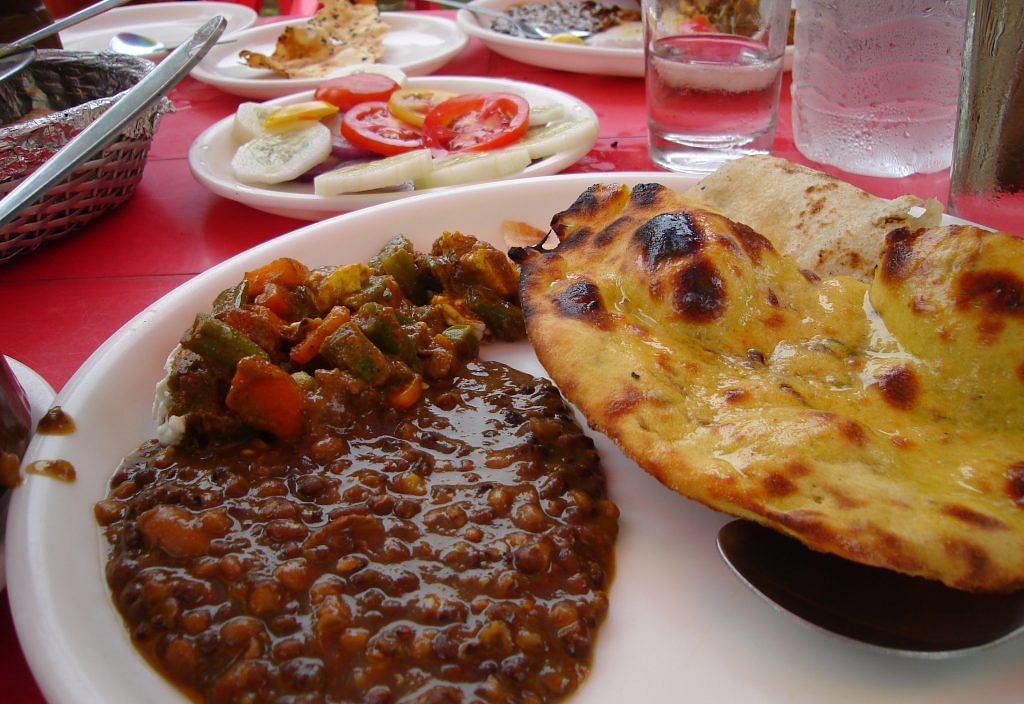Caste discrimination still occurs in our country through innocuous things like food, workers eating separately and ‘pure veg’ restaurants.
The email regarding the separation of plates at an IIT Bombay hostel is hardly surprising. For us, who directly bear the brunt of it in explicit and implicit ways, caste discrimination was very much a part of college life. Explicit discrimination in the form of casteist slurs or under the garb of it being ‘just an opinion’ on reservations was commonplace; that it also came from faculty members was sickening.
But, besides these explicit forms, caste discrimination perpetrates through seemingly ‘innocuous’ ways. One of them being food.
It is not coincidental that almost every college practices some form of separation of food. In my personal experience at IIT Bombay, hostels where the mess counter wasn’t big enough to have separate slabs for vegetarian and non-vegetarian food in the open, we had to go to a separate window behind the counter.
The housekeeping staff, the ones who cleaned our rooms, bathrooms and toilets, always dined separately, in a corner of the mess. Of course, they did it out of so-called ‘choice’, but the fact that no one spoke of this issue, at least during my time at the hostel, speaks about our dismal understanding of institutional discrimination and our complicity in it.
At Ashoka University, where I studied for a year, we had a separate floor upstairs for serving non-vegetarian food. Here also, casteism was implicit and we never saw the housekeeping staff dining with students. The one time we did indeed host the workers for a ‘Thank You’ lunch, we had a separate space sectioned for it. I won’t forget how one of the students, who was serving food, asked me why I was dining in that section.
These are issues that stem from a failure in understanding institutional discrimination. There is a need to acknowledge that our individual actions permeate through institutions, and sustain them.
Member of upper castes routinely fail to sensitise themselves about caste and its implication on cultures. They resort to making arguments which are premised on negating any claims of discrimination. These are usually the persons who are the most insulated from overt, and covert, forms of such discrimination. These are not people who have read enough about caste, nor have they listened to others narrating their lived experiences. But they have their ‘objective’ opinions nonetheless.
When these people become a part of any institution, they perpetuate their beliefs through institutional norms, either as those who establish the norms or the ones who follow it without question. The most insidious part of this process is where these institutional norms, which very much emanate from socially constructed personal beliefs, take a life of their own, absolving all its actors of any guilt or complicity.
The question of whether top institutions are promoting food casteism, besides casteism and discrimination in other ways, cannot be answered without putting students, faculty, non-academic staff—including mess workers and housekeepers—and the institutional mechanisms, all within the definition of the institution.
Institutions show this Brahminism even when we go to a restaurant in India, where the signs say ‘Pure Veg Restaurant’ or ‘Shuddh Veg’. Why does no vegetarian-meal serving restaurant abroad add the word ‘pure’? It’s crucial to locate the larger casteist framework behind a seemingly innocent move. Understand the patterns of these actions by universities, including verbal ones, within this definition.
This is probably the first step in accepting why it may be deemed discriminatory by persons who are affected by it, opening a dialogue with the concerned sections and changing the institutional norms accordingly, rather than premising the debate on denial of discrimination.
Parth Shrimali is an alumnus of IIT-Bombay and Ashoka University
